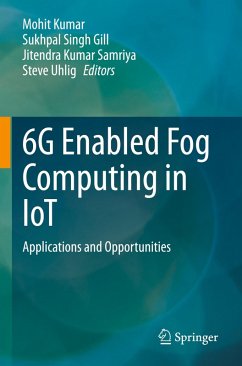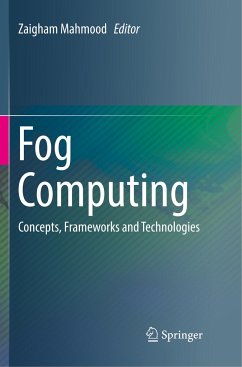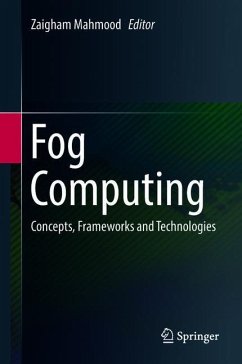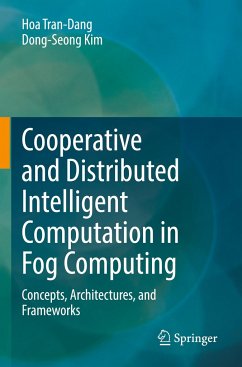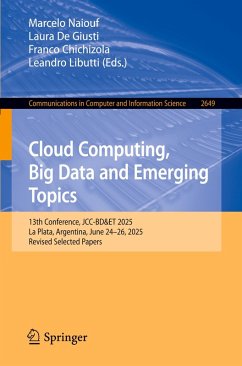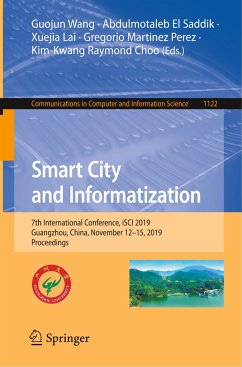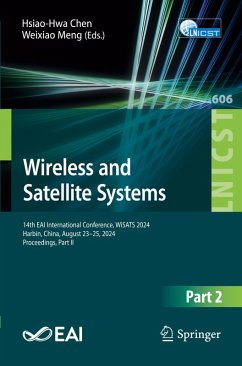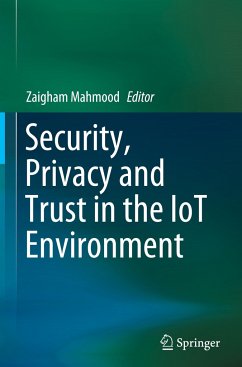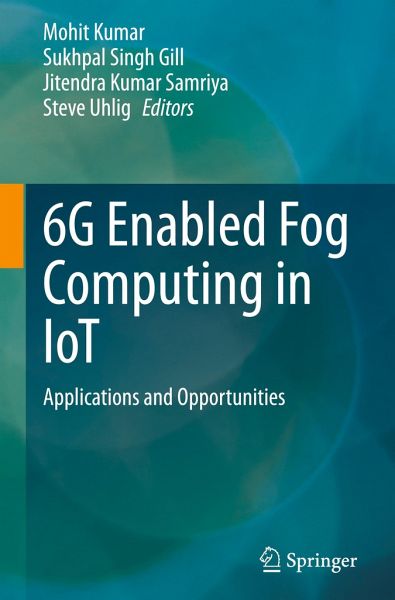
6G Enabled Fog Computing in IoT
Applications and Opportunities
Herausgegeben: Kumar, Mohit; Gill, Sukhpal Singh; Samriya, Jitendra Kumar; Uhlig, Steve

PAYBACK Punkte
65 °P sammeln!
Over the past few years, the demand for data traffic has experienced explosive growth thanks to the increasing need to stay online. New applications of communications, such as wearable devices, autonomous systems, drones, and the Internet of Things (IoT), continue to emerge and generate even more data traffic with vastly different performance requirements. With the COVID-19 pandemic, the need to stay online has become even more crucial, as most of the fields, would they be industrial, educational, economic, or service-oriented, had to go online as best as they can. As the data traffic is expec...
Over the past few years, the demand for data traffic has experienced explosive growth thanks to the increasing need to stay online. New applications of communications, such as wearable devices, autonomous systems, drones, and the Internet of Things (IoT), continue to emerge and generate even more data traffic with vastly different performance requirements. With the COVID-19 pandemic, the need to stay online has become even more crucial, as most of the fields, would they be industrial, educational, economic, or service-oriented, had to go online as best as they can. As the data traffic is expected to continuously strain the capacity of future communication networks, these networks need to evolve consistently in order to keep up with the growth of data traffic. Thus, more intelligent processing, operation, and optimization will be needed for tomorrow's communication networks. The Sixth Generation (6G) technology is latest approach for mobile systems or edge devices in terms of reduce traffic congestions, energy consumption blending with IoT devices applications. The 6G network works beyond the 5G (B5G), where we can use various platforms as an application e.g. fog computing enabled IoT networks, Intelligent techniques for SDN network, 6G enabled healthcare industry, energy aware location management. Still this technology must resolve few challenges like security, IoT enabled trust network.
This book will focus on the use of AI/ML-based techniques to solve issues related to 6G enabled networks, their layers, as well as their applications. It will be a collection of original contributions regarding state-of-the-art AI/ML-based solutions for signal detection, channel modeling, resource optimization, routing protocol design, transport layer optimization, user/application behavior prediction 6G enabled software-defined networking, congestion control, communication network optimization, security, and anomaly detection. The proposed editedbook emphasis on the 6G network blended with Fog-IoT networks to introduce its applications and future perspectives that helps the researcher to apply this technique in their domain and it may also helpful to resolve the challenges and future opportunities with 6G networks.
This book will focus on the use of AI/ML-based techniques to solve issues related to 6G enabled networks, their layers, as well as their applications. It will be a collection of original contributions regarding state-of-the-art AI/ML-based solutions for signal detection, channel modeling, resource optimization, routing protocol design, transport layer optimization, user/application behavior prediction 6G enabled software-defined networking, congestion control, communication network optimization, security, and anomaly detection. The proposed editedbook emphasis on the 6G network blended with Fog-IoT networks to introduce its applications and future perspectives that helps the researcher to apply this technique in their domain and it may also helpful to resolve the challenges and future opportunities with 6G networks.



